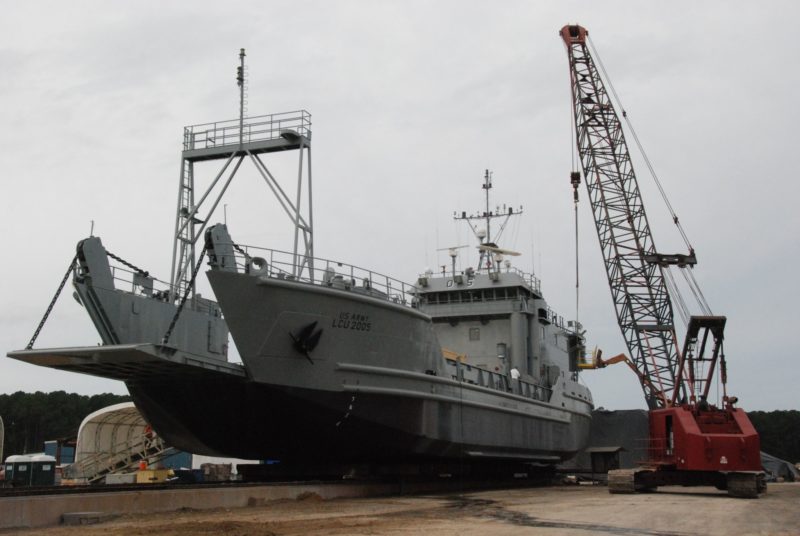Perched on the ways at Yonges Island, S.C., the 174’x42’x9’ landing craft Brandy Station was being readied to launch this week, the latest of the U.S. Army’s fleet to be overhauled at Metal Trades, Inc.
The family-owned shipyard and steel fabrication plant has deep roots in the island community of southern Charleston County. When I visited this week for an upcoming WorkBoat story, I found out how company founder J.E Corbin Jr. started out in 1962 with a pickup truck, a welding machine and his own expertise working with metal.
Yonges, nearby Wadmalaw Island, and towns like Meggett and Hollywood were tidewater farm country; in the 1920s Meggett had a reputation as the “cabbage capitol” of U.S. agriculture, with its concentration of truck farms, water transport, and a railroad line that connected them and fish and oyster canneries to national markets.
In the1960s there was the need to fix workboats, plus the escalating U.S. involvement in the Vietnam War. MTI became certified as a master ship repair contractor to the Army and Navy, a key business line today.

Army LCMs at the Metal Trades Inc. pier at Yonges Island, S.C. Kirk Moore photo.
But with the end of the Cold War, Congress created the Base Realignment and Closure process to take on the messy process of downsizing the U.S. military infrastructure. South Carolina took a big hit at the Charleston Navy Yard, where Metal Trades had a major operation.
As the Navy work wound down, costs went up and “we were spending $1 million a year there on maintenance,” recalled MTI president Shaun Flynn. In 2006 the company sold its lease there and retrenched at the Yonges Island facility, investing $18 million in new improvements, he said.
“We had a period of time when we really had to reinvent ourselves as a heavy steel fabricator,” said Flynn. Military contracts are still a big part of the business – Army landing craft have been the company’s bread and butter for years, and the MTI yard is full of modules for Army floating causeways that are being reconditioned. But the ratios have turned to where about 70% of the work now is commercial, he said.
Specialty barges are one line, including double hull fuel barges, crane and ferry landing barges, and the first new railroad freight car barge for New York Harbor in decades, delivered last year to the Port Authority of NY/NJ.
“New York has been a great customer of ours,” said Flynn.
MTI remains a family business – five brothers and two sisters have been involved over the years – and the company is planning for the next generation.
Heavy steel fabrication, building housings for heavy power generators, barges and ship repair are strong business lines, and helped MTI come out of the 2008 recession relatively unscathed. Flynn says, “We diversified in time to stay out of trouble.”




